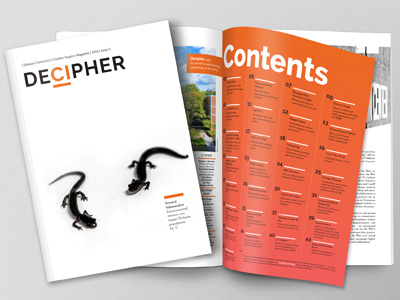All engineering students begin with General Engineering Curriculum. This provides a key foundation before deciding which program fits your interests and goals. With 11 majors to choose from, the General Engineering Curriculum allows you to explore what each degree means, the type of research you could be involved in and showcases possible career paths for your future.
The General Engineering Curriculum provides a key foundation before deciding which program fits your interests and goals.
Hands-on projects in your first semester allow you to apply skills from the beginning and build upon them throughout your time at Clemson University. Depending on your chosen specialty, you will need to become familiar with various software programs that serve to enhance your ability to plan, design, and test ideas.
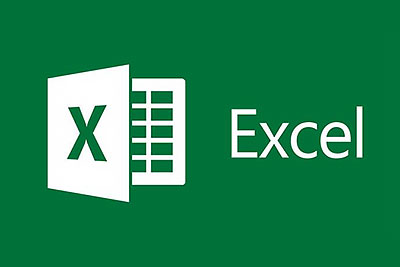 Engineering Disciplines and Skills (3 credits): Provides foundational engineering problem-solving skills. Students demonstrate problem-solving techniques with an emphasis on dimensions and units, create and utilize spreadsheets for analysis, employ modeling techniques, and interpret the validity of experimental results. Includes exploration of various engineering disciplines. This introductory course involves the use of Microsoft Excel.
Engineering Disciplines and Skills (3 credits): Provides foundational engineering problem-solving skills. Students demonstrate problem-solving techniques with an emphasis on dimensions and units, create and utilize spreadsheets for analysis, employ modeling techniques, and interpret the validity of experimental results. Includes exploration of various engineering disciplines. This introductory course involves the use of Microsoft Excel.
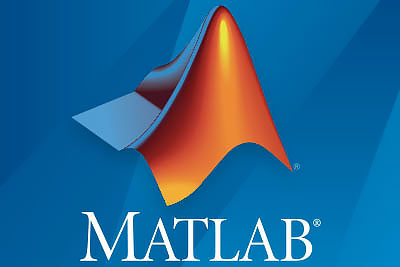 Programming and Problem Solving (3 credits) Students formulate and solve engineering problems individually and on teams using MATLAB and other computer applications; estimate answers for comparison to computed solutions; read, interpret and write programs, instructions, and formatted output; create and interpret plots and trendlines; evaluate and compose conditional statements and looping structures; and debug.
Programming and Problem Solving (3 credits) Students formulate and solve engineering problems individually and on teams using MATLAB and other computer applications; estimate answers for comparison to computed solutions; read, interpret and write programs, instructions, and formatted output; create and interpret plots and trendlines; evaluate and compose conditional statements and looping structures; and debug.
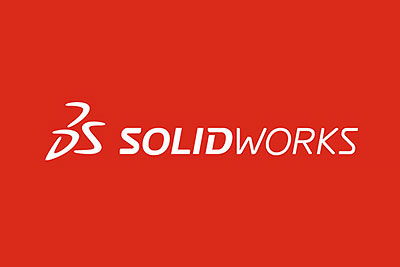 Engineering Graphics and Machine Design (2 credits): Introduction to engineering graphics and machine design. Sketching and CAD tools are used to visualize, communicate, rapid prototype, and analyze engineering problems. Solidworks software is used.
Engineering Graphics and Machine Design (2 credits): Introduction to engineering graphics and machine design. Sketching and CAD tools are used to visualize, communicate, rapid prototype, and analyze engineering problems. Solidworks software is used.
 Computer-Aided Design and Engineering Applications (2 credits): Introduction to graphics applications for engineering and related professions. Two-dimensional drawings and CAD tools are used to visualize, communicate, and analyze engineering problems. Engineering applications include contour plots, hydrology, transportation, architectural, and site plan drawings. AutoCAD software is used.
Computer-Aided Design and Engineering Applications (2 credits): Introduction to graphics applications for engineering and related professions. Two-dimensional drawings and CAD tools are used to visualize, communicate, and analyze engineering problems. Engineering applications include contour plots, hydrology, transportation, architectural, and site plan drawings. AutoCAD software is used.
Creative Inquiry
Creative Inquiry began in 2005 to allow students to practice their skills of problem-solving, critical thinking, and research on faculty-led projects. Over the course of 2-4 semesters, teams utilize creative approaches to problems around them, whether professor-prompted or steaming from the groups' observation of the world.
Decipher Magazine
The accomplishments of past groups of Creative Inquiry teams have been highlighted in the Decipher Magazine, an undergraduate-produced blog. Projects are in reverse chronological order and filterable by College.
View Magazine
Course catalog descriptions of each of our courses are as follows. For more information, please see the current course catalog.


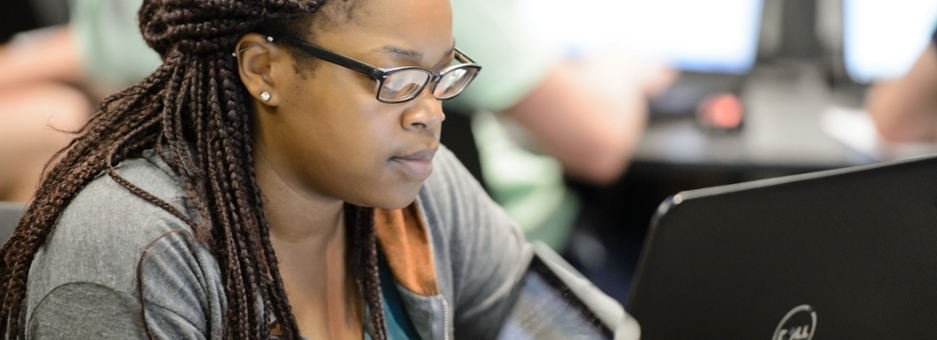
 Engineering Disciplines and Skills (3 credits): Provides foundational engineering problem-solving skills. Students demonstrate problem-solving techniques with an emphasis on dimensions and units, create and utilize spreadsheets for analysis, employ modeling techniques, and interpret the validity of experimental results. Includes exploration of various engineering disciplines. This introductory course involves the use of Microsoft Excel.
Engineering Disciplines and Skills (3 credits): Provides foundational engineering problem-solving skills. Students demonstrate problem-solving techniques with an emphasis on dimensions and units, create and utilize spreadsheets for analysis, employ modeling techniques, and interpret the validity of experimental results. Includes exploration of various engineering disciplines. This introductory course involves the use of Microsoft Excel. Programming and Problem Solving (3 credits) Students formulate and solve engineering problems individually and on teams using MATLAB and other computer applications; estimate answers for comparison to computed solutions; read, interpret and write programs, instructions, and formatted output; create and interpret plots and trendlines; evaluate and compose conditional statements and looping structures; and debug.
Programming and Problem Solving (3 credits) Students formulate and solve engineering problems individually and on teams using MATLAB and other computer applications; estimate answers for comparison to computed solutions; read, interpret and write programs, instructions, and formatted output; create and interpret plots and trendlines; evaluate and compose conditional statements and looping structures; and debug. Engineering Graphics and Machine Design (2 credits): Introduction to engineering graphics and machine design. Sketching and CAD tools are used to visualize, communicate, rapid prototype, and analyze engineering problems. Solidworks software is used.
Engineering Graphics and Machine Design (2 credits): Introduction to engineering graphics and machine design. Sketching and CAD tools are used to visualize, communicate, rapid prototype, and analyze engineering problems. Solidworks software is used.  Computer-Aided Design and Engineering Applications (2 credits): Introduction to graphics applications for engineering and related professions. Two-dimensional drawings and CAD tools are used to visualize, communicate, and analyze engineering problems. Engineering applications include contour plots, hydrology, transportation, architectural, and site plan drawings. AutoCAD software is used.
Computer-Aided Design and Engineering Applications (2 credits): Introduction to graphics applications for engineering and related professions. Two-dimensional drawings and CAD tools are used to visualize, communicate, and analyze engineering problems. Engineering applications include contour plots, hydrology, transportation, architectural, and site plan drawings. AutoCAD software is used. 